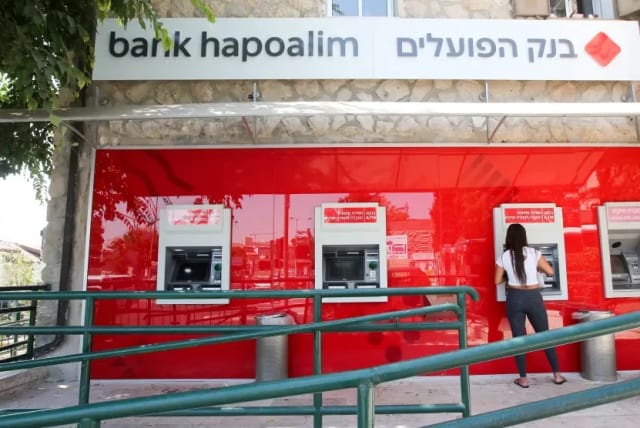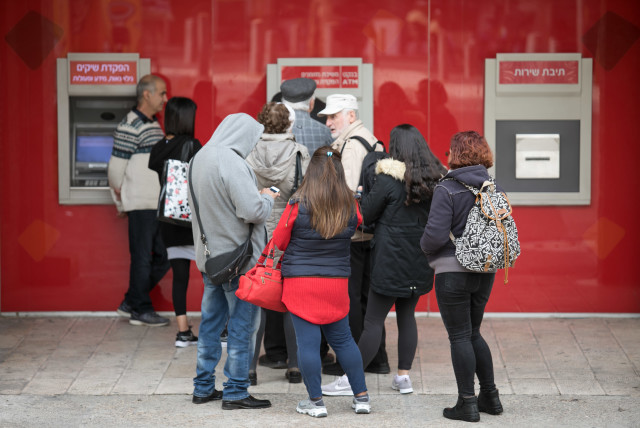Bank Hapoalim cautions against overoptimism in economic recovery

Following last week's release of positive economic indicators, Bank Hapoalim has issued a cautionary note to investors and policymakers.
In the wake of last week’s release of positive economic indicators, Bank Hapoalim has issued a cautionary note, advising investors and policymakers to interpret the data with caution. The bank’s latest report underscores that much of the apparent economic growth stems from a low comparison base in October, suggesting that a full recovery may be more protracted than initially anticipated.
According to Bank Hapoalim, the return to prewar production levels could extend beyond the one-year mark, casting doubt on the sustainability of recent gains. The report attributes the recent strengthening of the shekel, in part, to the ongoing surge in Wall Street indices and rumors surrounding potential progress in negotiations for a hostage release deal.
Despite the buoyant economic sentiment, the bank maintains a conservative stance on inflation, forecasting a modest 2.8% increase over the upcoming year. Furthermore, it anticipates that interest rates are unlikely to see a decrease in the near term, citing stability concerns and prevailing market conditions.
Hapoalim maintains a conservative stance on inflation
The disparity between local and foreign stock markets is also a focal point in the report, with Bank Hapoalim observing a notable risk premium primarily priced into foreign equities. This discrepancy, exemplified by the divergence in bond yields between Israel and the United States, underscores the unique challenges facing the Israeli market amid global economic shifts.
Last week’s economic data painted a mixed picture, with positive indicators such as the Purchasing Managers’ Index (PMI) signaling improvement in both the industrial and service sectors, albeit still below prewar levels. Hi-tech exports remain resilient, while government support cushions household and business spending, though concerns linger over the sustainability of such measures.
The recent appreciation of the shekel against the dollar reflects broader market dynamics, influenced by external factors such as Wall Street performance and geopolitical developments. Institutional investors have responded by increasing their exposure to foreign currency, amplifying the impact of global market movements on local exchange rates.
Looking ahead, inflationary pressures may emerge from factors including rising oil prices and transportation costs, complicating efforts to maintain price stability. The Bank of Israel’s decision to maintain a stable risk premium underscores the importance of external risk factors in shaping monetary policy decisions.
Jerusalem Post Store
`; document.getElementById("linkPremium").innerHTML = cont; var divWithLink = document.getElementById("premium-link"); if (divWithLink !== null && divWithLink !== 'undefined') { divWithLink.style.border = "solid 1px #cb0f3e"; divWithLink.style.textAlign = "center"; divWithLink.style.marginBottom = "15px"; divWithLink.style.marginTop = "15px"; divWithLink.style.width = "100%"; divWithLink.style.backgroundColor = "#122952"; divWithLink.style.color = "#ffffff"; divWithLink.style.lineHeight = "1.5"; } } (function (v, i) { });

